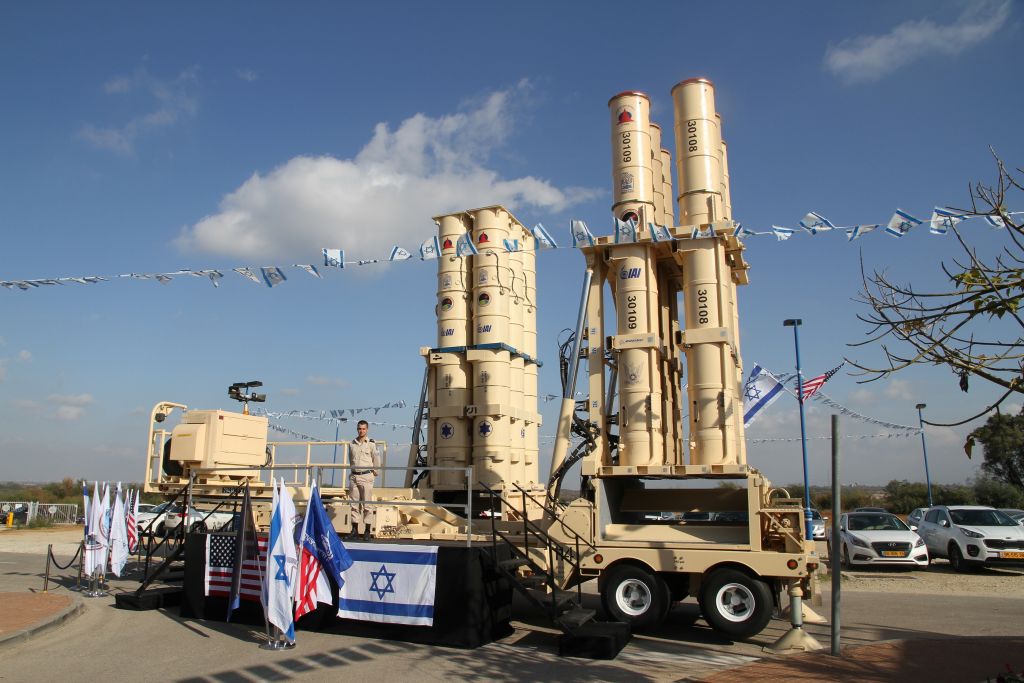Israel has reportedly agreed to sell the United Arab Emirates its SPYDER air defense system, illustrating the rising popularity of Israeli weaponry in the global market.
The SPYDER mobile interceptors manufactured by Rafael Advanced Defense Systems, an Israeli defense firm, are designed to protect against various threats, including drones and cruise missiles.
The agreement was claimed to have been struck this summer, reported Reuters, citing sources. But, it is unknown how many interceptors Israel will be expected to provide and whether they have already been shipped. Interceptors installed on vehicles counter both close and long-range threats.
On September 20, Ram Ben-Barak, the head of the Foreign Affairs and Defense Committee, was questioned about the agreement. He declined to comment other than to note that Israel and the UAE have extensive cooperation.
UAE has decided to purchase this system after Yemen’s Iran-backed Houthi rebels launched numerous missile and drone attacks against the UAE.
UAE is a member of a Saudi-led military alliance that backs the Yemeni government in its fight against the Houthis. The UAE withdrew its troops from Yemen in 2019, yet it continues to play a significant role.

In 2020, as part of the Abraham Accords, Israel and the United Arab Emirates normalized their relations. Recently, Sheikh Abdullah bin Zayed, the foreign minister of the UAE, visited Israel and met with the country’s Prime Minister Yair Lapid, President Isaac Herzog, and Defense Minister Benny Gantz.
The UAE has long benefited from its reputation as a secure and stable location to conduct business. The threat from Iran-backed groups has driven it to strengthen its defense capabilities.
The US-made Terminal High Altitude Area Defense (THAAD) and Patriot interceptors could not detect some missiles and drones that struck the UAE by flying at low altitudes.
In contrast, the SPYDER system from Israel can fend off low-altitude threats like helicopters, drones, and cruise missiles.
In 2021, the SPYDER (Surface-to-air PYthon and DERby) was displayed at IDEX 2021, a biennial arms and defense technology sales exhibition in Dubai.
Rafael’s cutting-edge Python-5 and I-Derby missiles are incorporated into the mobile system to offer short, medium, and long-range defense against various threats.
The weapon can engage several threats simultaneously up to 80 kilometers afar in any weather, thanks to its electro-optical observation payload and wireless data link connectivity. The system has also been exported to several countries, including India, the Czech Republic, and the Philippines.
Growing Demand For Israeli Air Defense Systems
Israel has some of the most cutting-edge defense systems in the world to counter a range of aerial dangers. The country is guarded by a multi-layered defense system that consists of the active defense systems Arrow-2, Arrow-3, David’s Sling, and Iron Dome.
The success of these air defense systems has led many countries to explore purchasing them. Recently, it was reported that the nation is in talks with Germany to sell its Arrow 3 defense system.
Arrow 3 is intended to intercept and destroy modern, longer-range threats, particularly those carrying weapons of mass devastation.

Furthermore, this year, multiple reports have surfaced claiming that Israel and its regional partners are building a joint defense system to counter the threat of Iranian drones and missiles.
During the Negev Summit in March, foreign ministers from Israel, the US, the United Arab Emirates, Bahrain, Morocco, and Egypt discussed the idea of a joint air defense system between Israel and its Arab neighbors.
The US military also obtained the two Israeli Iron Dome air defense systems from Rafael. This was a stopgap to defend against cruise missiles and drones until the service’s own Indirect Fires Protection Capability (IFPC) was built.
India’s Infamous Incident With SPYDER
India also operates the Israeli SPYDER air defense system. In 2019, the Indian Air Force faced an embarrassing situation when its Mi-17 helicopter was downed by its own SPYDER missile over Budgam in Jammu and Kashmir.
Following the Balakot strike on February 2019, directed at a terrorist base in Pakistan, the Indian air defenses were on high alert. The IAF accidentally shot down one of its helicopters in a case of friendly fire.
All six members of the Indian Air Force aboard the helicopter died when it crashed near Budgam. The Mi-17 V-5 helicopter from 154 Helicopter Unit went down just ten minutes after taking off, as Pakistani and Indian fighter jets were engaged in an aerial duel.
Later, then IAF chief Rakesh Kumar Bhadauria admitted it was a “big mistake” on the part of the Air Force. The service also found five Indian Air Force officers guilty and launched a court martial.
- Contact the author at ashishmichel@gmail.com
- Follow EurAsian Times on Google News




